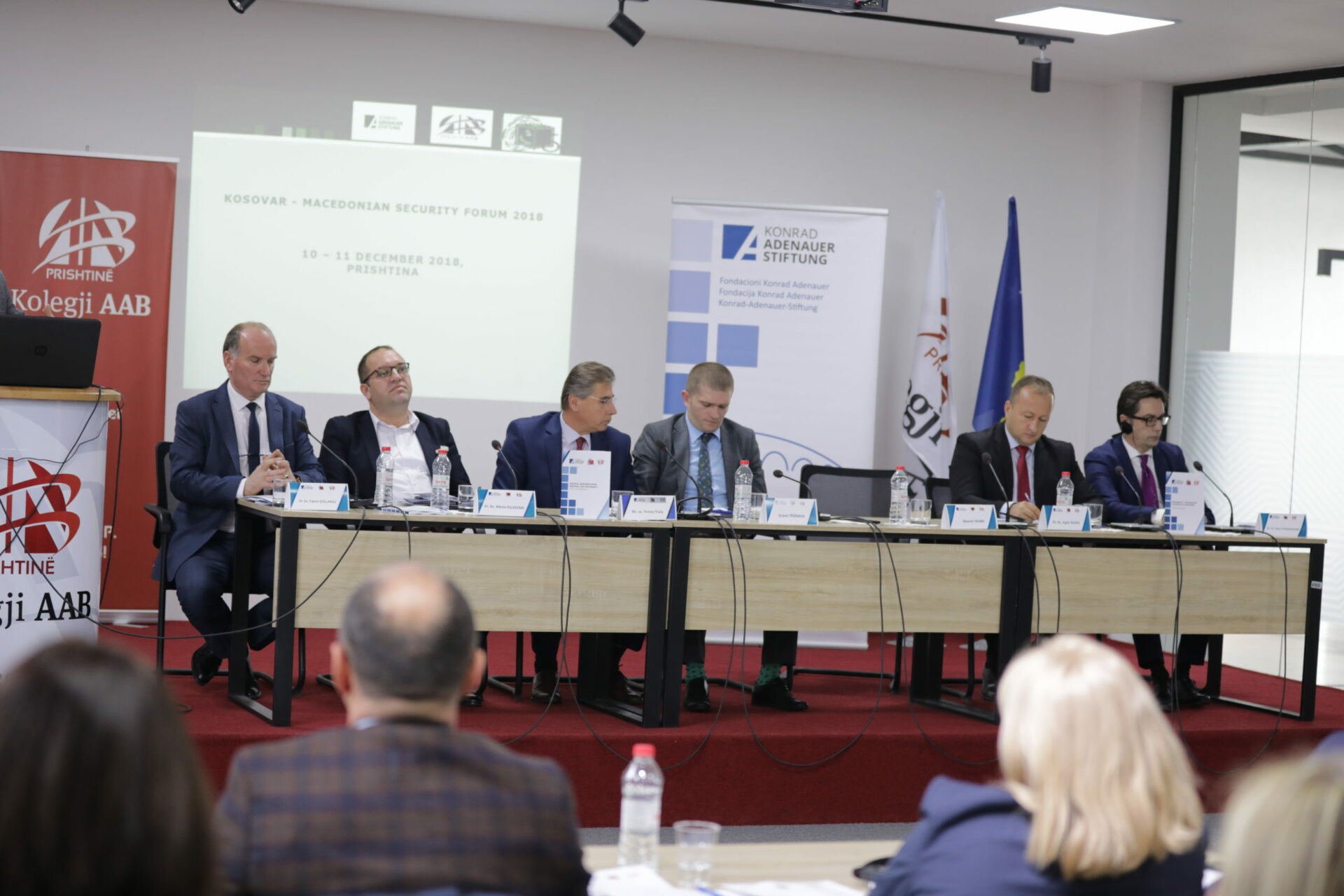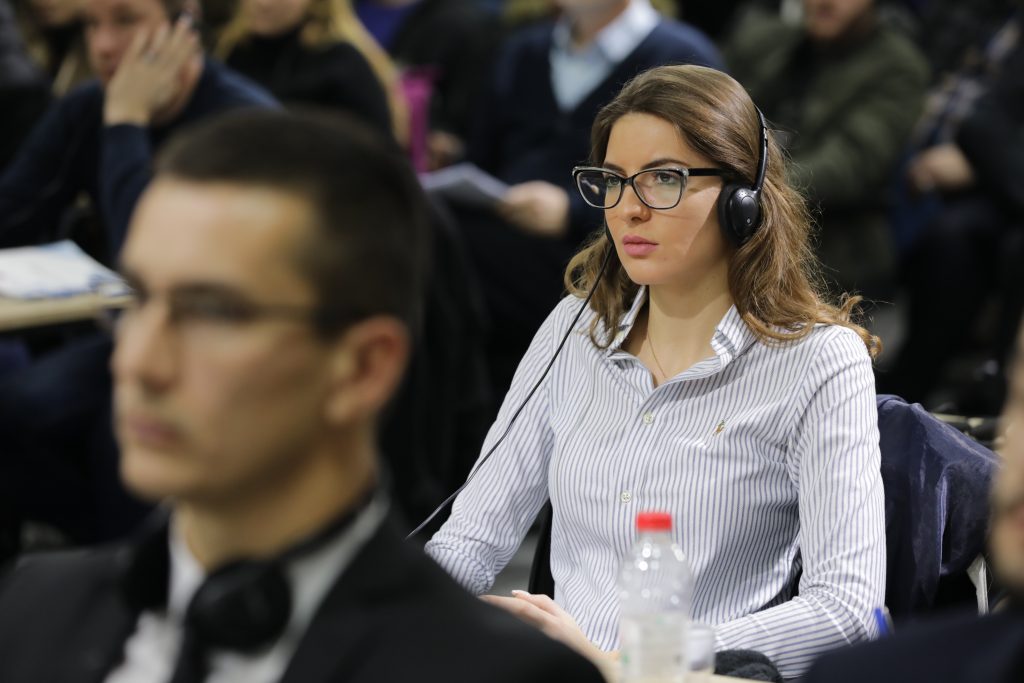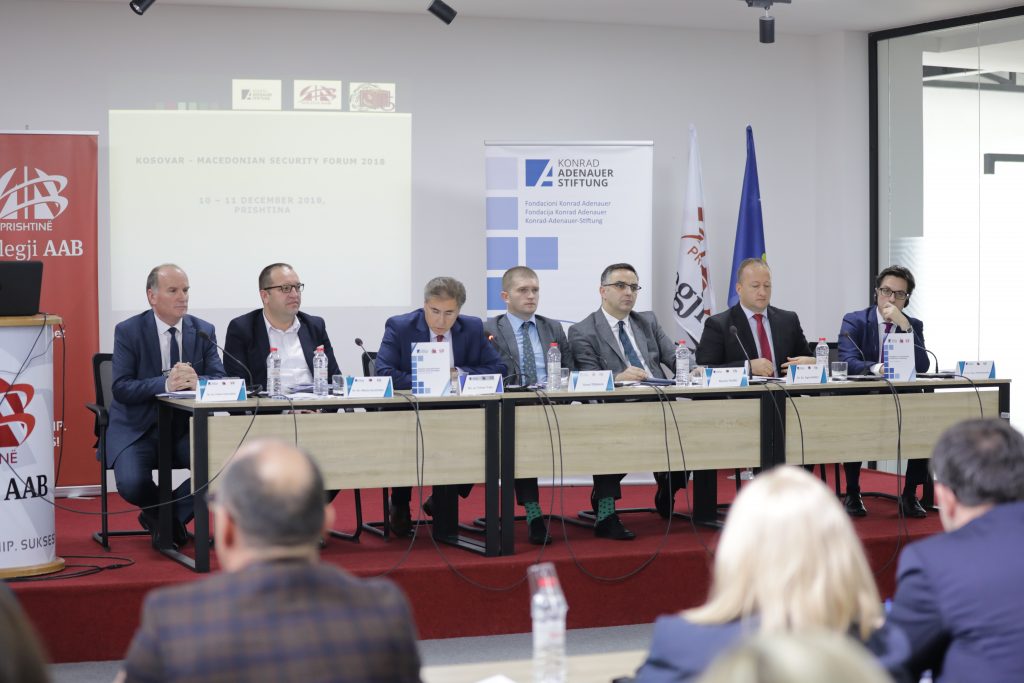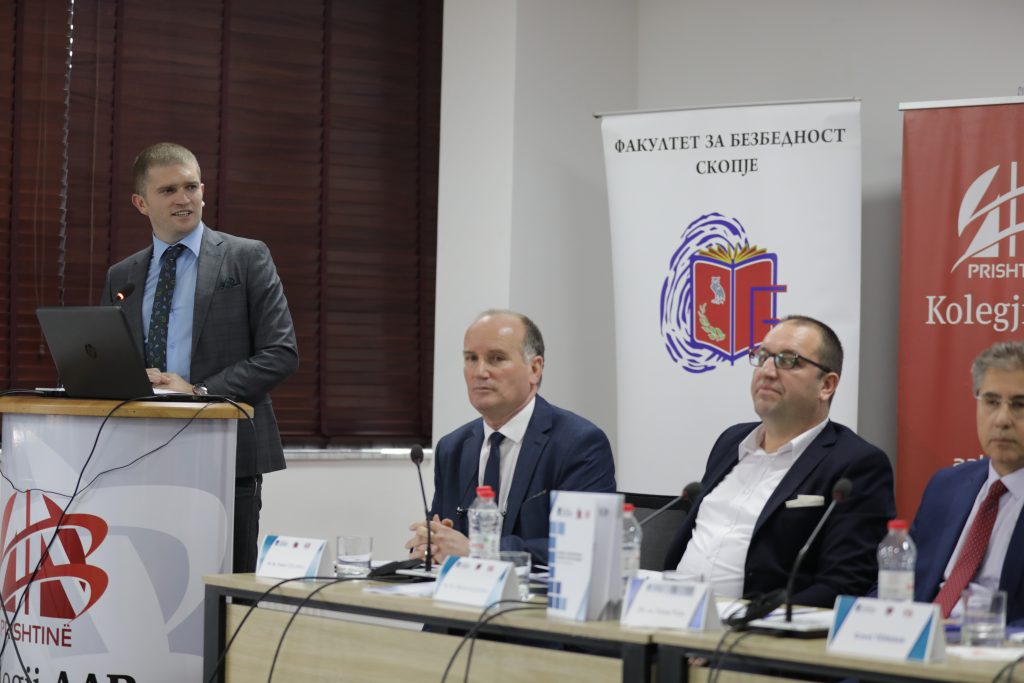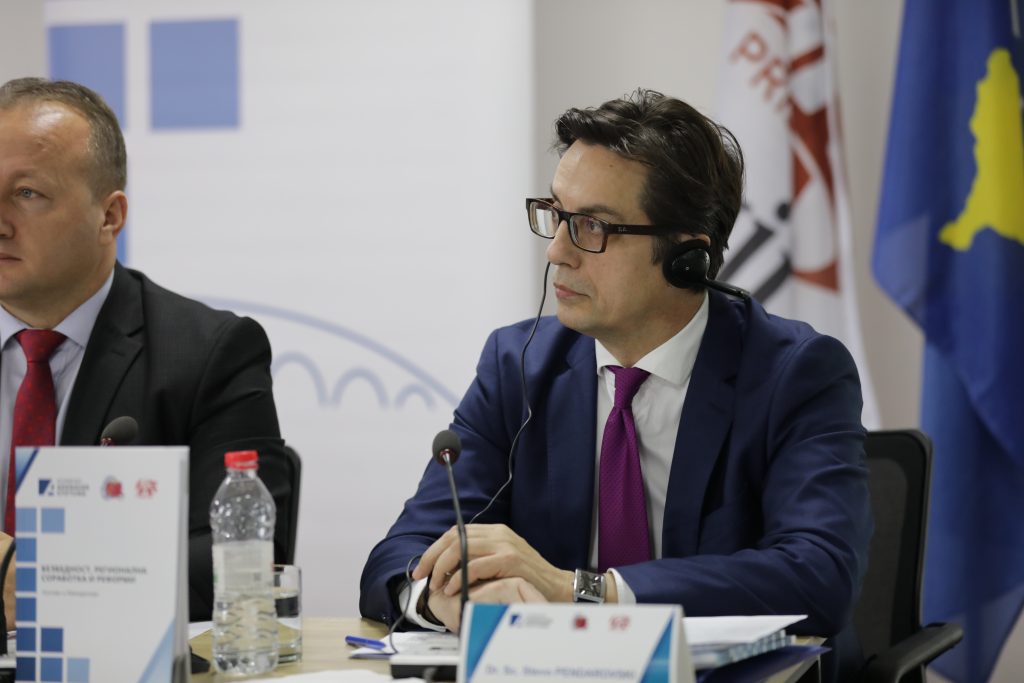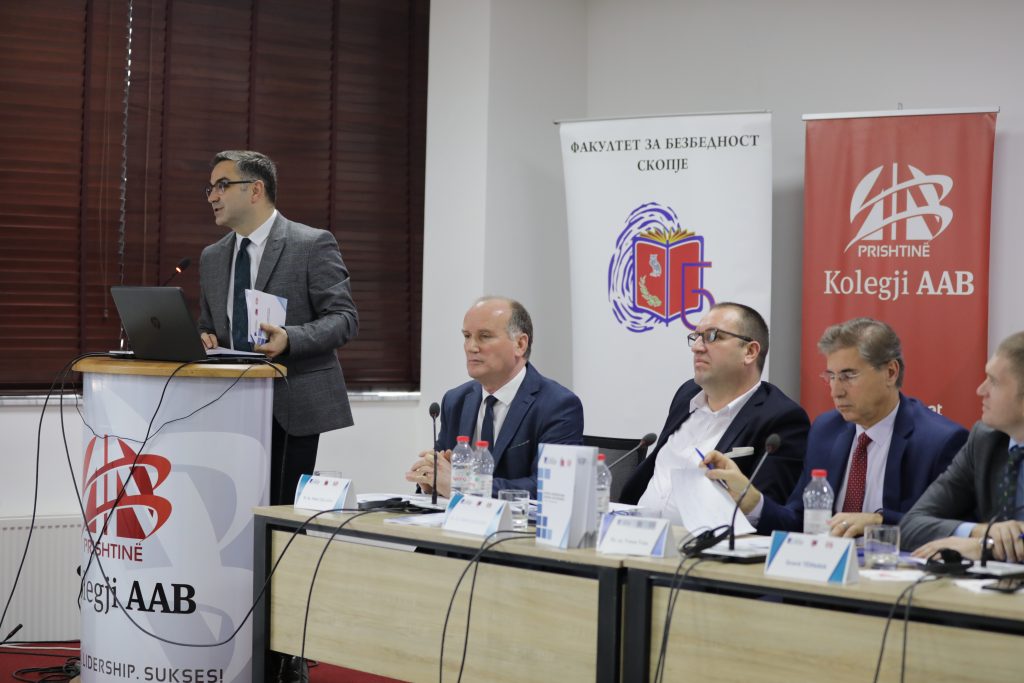

Organized by the Konrad Adenauer Stiftung Foundation, the Kliement Ohridski University, the Faculty of Security in Skopje, and AAB College, today the Kosovo-Macedonia Security Forum has begun.
Many important personalities of the security sector are participating in this event. During the opening ceremony, Dean of the Faculty of Law of AAB College, Veton Vula wished the forum good luck and thanked all the participants for their contribution.
Program Manager at Konrad Adenauer Foundation, Kosovo Office, Granit Ternava said that the reason for this conference today is to strengthen the cooperation between Kosovo and Macedonia where regional security is concerned.
‘The topic of security at a regional level holds special importance, and deserves the attention of us all. Unfortunately, because of reasons known to us all, Kosovo failed to become a member of Interpol, thus preventing the international formalization of the country which would have offered much in the way of security. However, this cannot and will not stop Kosovo’s cooperation with regional countries in addressing topics of security, and Macedonia is such a country.” said Granit Ternava.
National Coordinator for State Reform in Kosovo, Besnik Tahiri, reiterated that cooperation, willingness, and security are the three key factors for a country’s stability. He also said that in a decade of statehood Kosovo has proven to be committed to having a good relationship with all Western Balkan countries.
“When speaking of interstate security and Balkan stability, these three factors in this publication, in my opinion, are key: first, the willingness to be serious in implementing the reforms in each sector of state administration—in this case we are referring to rule of law and security; second, regional cooperation, with the lessons learned from the successes that a Western Balkan state has achieved; third and most important is security. I congratulate you for the publication” stated Tahiri.
Deputy Minister of Internal Affairs of Macedonia, Agim Nuhiu said that Western Balkan countries should have a standardized security function that should be harmoniously aligned with Euro-Atlantic partners.
“The security system is one of the most important postulates of statehood—while threats with legal remedies and mass influxes from migration are and remain a test for security, the rule of law, and human rights and freedoms of citizens” said Nuhiu, while also adding that Macedonia and Kosovo should have strong ties with the Euro-Atlantic states.
In this event involving academics and professionals from Macedonia, Kosovo and Bosnia and Herzegovina, the aim is to identify mechanisms for dealing with security threats.
This project will be analyzed and explored in three areas that rely on the concept of security in both countries: security system reform, terrorist and foreign mercenary threats, re-socialization, de-radicalization, enhancement of security through rights policies of minorities, and the risk of border alterations in the region.
